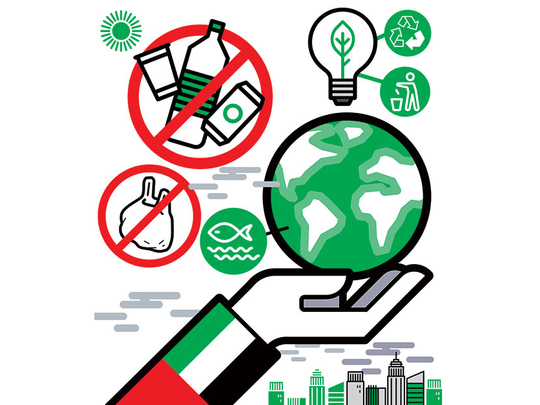
On April 22 each year, the world celebrates Earth Day, a major international environmental occasion to demonstrate support for mother earth and raise awareness on important environmental theme for humankind.
The Earth Day theme for this year is focused on a very critical environmental issue that affects every species on planet Earth now and in the future: ‘End Plastic Pollution’.
Currently, the overwhelming majority of plastic products aren’t biodegradable. As such the plastic in use today is likely to stick around for thousands of years, posing a threat to the lives of animals, aquatic organisms and humans alike. According to the United Nations, if the sea and ocean plastic pollution rates continue at the current pace, the volume of accumulated plastics in the oceans and seas will be greater than that of fish by 2050.
Thus, during the fourth United Nations Environment Assembly (UNEA 4) held in Nairobi (December 2017), all countries signed a UN resolution to eliminate the dumping of plastic waste in the seas and oceans, a move that some countries and experts hope will pave the way for a legally binding treaty for this serious ecological problem.
On one hand, one can easily realise that, the plastic usage is mainly a human attitude problem as we have, currently, many other environment-friendly alternatives for plastic bags in the market such as cloth, cotton or linen bags. Also, glass bottles are great healthy alternatives to plastic bottles. Moreover, scientists managed to develop biodegradable plastic options. Thus, the world definitely has a huge task to fundamentally change human attitude and behaviour about being addicted to usage of plastic products.
On the other hand, one must say that plastic products are very essential for our modern life as they are used in many industries. So, it is very important to focus plastic usage only in vital industries such as cars, aeroplanes and electrical power. But there is no point in using them for packing and grocery purposes, for example.
There is an urgent need to educate and mobilise people across the globe to demand action from governments and corporations to control and diminish plastic pollution. This should go handy with informing and educating consumers towards taking personal responsibility for the plastic pollution that each one of us generate by choosing to reject, reduce, reuse and recycle plastics.
An initiative was announced in the UAE in 2009 to make the country free of plastic bags by 2013, but that initiative has not met its target. However, recently, the Ministry of Climate Change and the Environment in UAE, in cooperation with a number of federal and local government agencies and private sector organisations, launched the ‘Responsible Consumption for a Sustainable Future’ campaign to raise awareness on how to optimise plastic products. The campaign slogan, ‘Together to Protect Our Environment with Optimal Use of Plastics’, in conjunction with Earth Day — which aims to raise awareness and change behaviours that institutions and individuals must follow to rationalise, recycle and reuse plastic products — is a step in the right direction.
Several initiatives launched over the past few years have contributed towards firming the UAE’s role as a leader in plastic waste recycling. The country has also recorded the highest percentage in public awareness on how to recycle as well as highest public knowledge of recycling codes for plastic products in the Gulf Cooperation Council Countries, according to the report of the Gulf Union of Petrochemicals and Chemicals 2017.
It is worth mentioning that Dubai Airport lounges follow best-practices in providing glass bottles for water, instead of plastic ones. One hopes this move will spread to other institutions across the country soon.
There is no doubt that the easiest way to reduce the presence of single-use plastics is to ban or begin phasing out their consumption. Many countries around the world such as India, Kenya, the United States, Italy and Germany have issued an absolute ban or have introduced a levy on plastic bags in a bid to curb usage.
Earth Day is an opportunity to reflect on what we can do as individuals to reduce our environmental footprint. Having said that, moving towards “a plastic free UAE” will not happen overnight. It is a long journey that can start today. So, let us hope that this year’s Earth Day will spread awareness about plastic pollution and that awareness need not be limited to one single day of the year only.
Wish you all a Happy Earth Day.
Dr Mohamed Abdel Raouf is an independent environment researcher.












